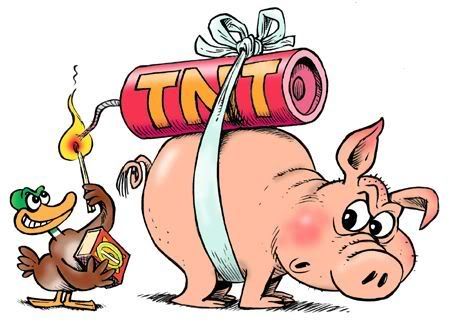
There is an epidemic causing harm in the billions to the real estate industry -- mortgage fraud. This fraud is often a violation of both civil and criminal laws. That is why the FBI is actively involved in the investigation and apprehension of the perpetrators.
Mortgage fraud can take many forms: a homebuyer inflates his assets or income on a loan application or conceals liabilities; an investor falsely represents that she will live in a condominium to obtain a better loan rate; a con artist uses someone else's good credit to borrow money to buy a residence at an inflated price; or an organized crime ring hatches a complex scheme to defraud a lender using a dishonest appraiser and an insider employed by the lender.
Each of these transactions is governed by Federal Law. Form 1003, the Uniform Residential Loan Application that every buyer signs when he or she applies for a loan, references Title 18, United States Code section 1001. Under that code section, buyers, appraisers, agents, loan officers and other parties are prohibited from lying on a loan application or any other document related to the transaction.The "straw buyer" is the most pathetic character in the annals of mortgage fraud--the pig in the cartoon. For example, a con artist persuades a straw buyer to take title to a residence that is being leased, using their good credit to obtain a loan. The straw buyer is promised by the con artist that he will make all the mortgage payments, sell the residence in one year and split the profit 50-50. The deal is "too good to be true." The con artist may, in cahoots with the seller, inflate the price of the house with a false appraisal and get cash back at the closing for repairs that are never made. The con artist then disappears with the kickback and the straw buyer finds herself saddled with an inflated mortgage and a house with no equity in a declining market. The straw buyer stands to suffer a foreclosure and ruin her credit, unless she sells the house short for a loss and compensates the lender for the loan deficiency. Perhaps worst of all, the straw buyer has unwittingly engaged in violations of Federal Law that carry criminal penalties.
To read more about mortgage fraud and the types of schemes used by the culprits, click here.
